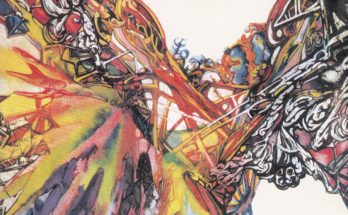By Rodrigo Díaz, José María Moreno, and Bernardo Moreno
As a species, humanity has not ceased searching for answers—in the sky above and the land below, in the vastness of the mind and the inscrutable essence of time—a search for something that could lead us to understand the phenomena around us and the reason behind our existence. After more than 100,000 years since the appearance of the Homo sapiens, we have barely shed any light on the causes of our mise-en-scène: from primitive religions to the creation of concepts such as fortune or providence; from mystical and occultist techniques like the reading of the passing of celestial bodies or tarot cards—a special mention to the Ouija board that attempts to look into the “beyond”—all the way to modern-day telescopes and particle accelerators. And we keep on searching.
From an individual standpoint, we cannot stop analyzing the constellations that form our personalities and personal relationships, as obvious or inconspicuous as they may be. From the depths of our desires, fears, and fantasies, we reach conclusions based on mere predictions, visions, and omens that we fancy as irrefutable. So, we walk this earth like blind people holding on to our beliefs, “because there is magic, baby,” and so we go from chance to cause, as these three recommendations exemplify.
“Riders of Justice”
Directed by Anders Thomas Jensen, 2020
Another great film with one of our favorite actors, Mads Mikkelsen (“Another Round”), and the outstanding directorial work of Anders Thomas Jensen. This Danish tragicomedy deals with the search for meaning, through statistics and probability analysis, behind an accident that brings together the strangest of troupes: a group of disturbed mathematicians, a young Ukrainian prostitute, a tough-as-nails army man—who lost his wife in a freak accident—and his adolescent daughter. What was the reason for the accident? How did they reach that specific and disastrous moment in time and space? Who could explain it, and, what’s most troubling, does it even have an explanation? Is it just the work of chance, of fate? Through these beautifully damaged characters, we realize that perhaps, resignation and love are the answer. But before that, they will commit to seeking justice at their own hand, even going against the mafia, the perfect excuse for the deranged military man to exercise what he was trained for, but also the most fitting justification for him, who also happens to be a cold, distant, and broken father, to get closer to his adolescent daughter who also just lost her mother. This is a film of subtle humor, endearing characters, great performances, and a story that leaves you pondering what destiny is—such an intricate, loaded, and interesting concept.
“After Finitude”
By Quentin Meillassoux, 2006
The first book of this great French philosopher marked a break in contemporary philosophy. Although the book is short, the rupture it created is insurmountable: Correlationism, the modern idea that the mind and the world are in synch for some reason—even if Kant himself was unable to determine why—has been abandoned. But without a doubt, the concept that earned most traction in this treatise is the imperative to get rid of our notions of causality—Hume had already established the difference between causality and constant conjunction; if something repeatedly precedes something else, it does not entail a causal relationship—and adopt the reigning ontological concept of non-contradiction: Something cannot be what it is and something else. To hell with dialectics and progressive philosophy! The only thing necessary in reality is that everything that exists is contingent and unique. Since the very laws of physics have not changed, it does not follow that they are absolute, just that they repeat themselves constantly. We must be able to conceptualize the idea that, at every moment, reality is already and forever something else.
“Crying Over Pros For No Reason”
edIT, 2004
When thinking about electronic music—especially if one is new to the genre—one imagines perfectly organized sequences with no room for variation. Perhaps that wouldn’t fall too far from reality if it were not for the electronic boom that, at the turn of the millennium, was labeled “alternative” and soon bred a series of subgenres (breakbeats, IDM, dubstep, glitch, etc.) that took over the music scenes of London and Los Angeles, to then be launched around the world. Edward Ma’s pseudonym, edIT, is a good example of this progression as he pierced the sound waves with this, his first production: A series of 15 tracks where organic and digital are perfectly in sync, a fusion that is much more than the sum of its parts. The use of glitch effects (“an error in the system” kind of sound) paired with acoustic guitar arpeggios or a mysterious organ that is always at the back of the track, turning itself into a burning nail to hold on to before losing oneself in the latent and present sound maelstrom, create a vertiginous contrast that speaks of the future to come, something always refreshing when compared to the soulless and eternal house beat.




